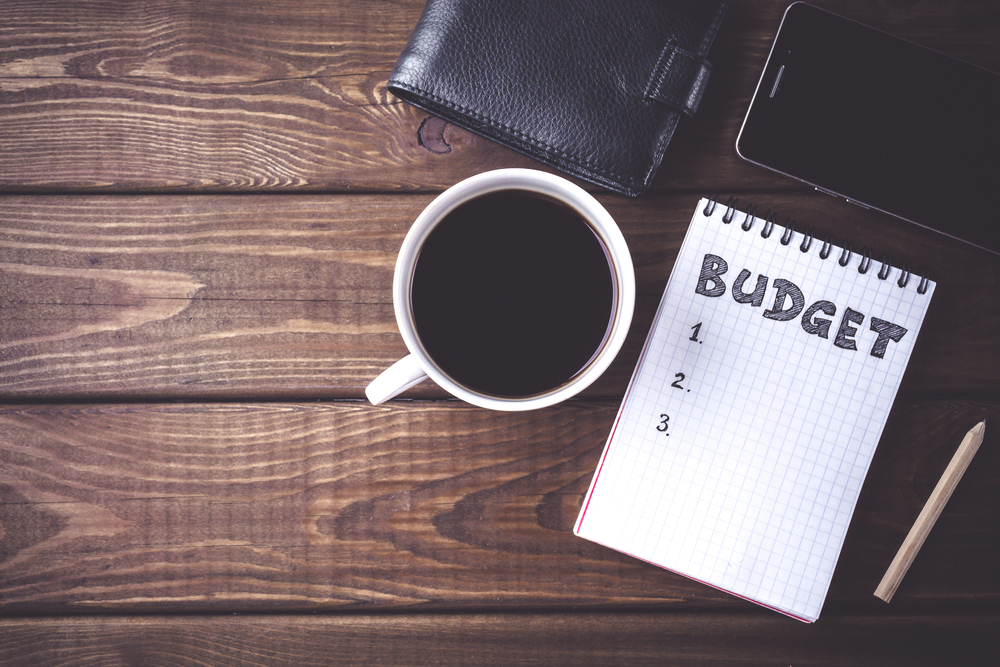Don’t Let Money Run Your Life
 How Much Are You Spending & on What?
How Much Are You Spending & on What?
Before you do anything else, it’s important to look at your finances and spending habits. How much are you spending, and on what? Whether you’re writing this down on paper or building a spreadsheet, make sure you account for the big expenses as well as the small.
The tiny purchases are no less important. For example, look at how much your spending on a morning coffee each week. It might be far more than you think, and more than you can realistically afford.
Build a Budget & Plan
If you haven’t already, build a budget. You can work with your list of expenses you’ve already created.
Try to separate the necessary expenses from the “luxury” expenses. If the “luxury category is larger than you had anticipated, try and break that list down even further into subgroupings.
Ask yourself what is the honest amount you can spend in these categories. Don’t use this time to just estimate your expenditures.
If you’re feeling like you spend far too much in a particular area, realistically judge that number.
Is your spending unbalanced? This is the time to ask yourself as many questions as you can about where your money is going.
If you don’t want your money to control you, you first have to have a better understanding of it and yourself.
Lastly, add a bit of cushion into that budget. You may not be able to put an entire check into a savings account, not to be touched till an emergency situation, but try your best to save when you can.
It could be five dollars a week, or maybe fifty. Maybe the amount will fluctuate drastically from month to month.
The idea is to build some form of a “rainy day” fund. Be strict with yourself. Try not to use your savings for anything that isn’t an emergency, or for the betterment of your life.
Have that fund set aside for the things life will unexpectedly throw at you or paying off any accumulated debt.
Control Your Spending
 Now’s the time to take back control! Your money doesn’t have to burden you or take over your life.
Now’s the time to take back control! Your money doesn’t have to burden you or take over your life.
However, if you don’t want it to run your life, you have to be willing to take action, and live within your means.
Living paycheck to paycheck is a hassle, but it’s at times the only way you might be able to live.
If this applies to you, make sure you’re sticking strictly to your budget.
Overspending in a luxury area may mean you’re choosing a material item over staying current on bills, paying off debt, and saving for the future.
If you’re struggling to stay on budget, make sure to account for where the overspending is happening. Are you eating out too often, spending on unnecessary material items, or splurging on groceries?
Where Can You Cut Costs?
Trimming your budget may be a requirement to get back on track, but even if it isn’t, it’s a good idea to look at your spending habits and see what you can do without.
Whether it’s ending a paid subscription, or just doing things around the house that could potentially lower your utility bills. It’s easy to forget just how many small things we can do to save money here and there.
If you see something on your list that you completely forgot you even pay for, cut it loose.
You might decide to add whatever it was back into your budget when you’ve achieved greater financial stability, or you might realize you no longer need it or don’t use it enough to justify it.
 Manage Your Debt
Manage Your Debt
Stop Spending on Non-Necessities
If you need an extreme redirection for how you’re spending your money, think about instilling a “no buy” period for yourself.
For however long is reasonable to you, don’t make purchases that are not absolutely necessary for living.
This means, unless you’re spending your money on replenishing and replacing, don’t spend at all.
Replenish your necessary items like groceries, water, and anything else you need to survive, and replace items that only genuinely need to be replaced.
Pay Off Debt Now Vs. Later
Don’t put it off any longer. Pay off the debt that’s been accumulating, especially if you owe interest on anything.
You may be thinking, if it were that simple, I’d have paid it all of already. The question is, have you been making a genuine effort to pay off those debts, or do you push it out of your mind, trying to forget the debt altogether?
If it’s the latter, it’s time for a wakeup call. Don’t ignore your debt, rather plan for how to conquer it.
Don’t Be Afraid of Talking About Your Debt
Creditors would rather you pay something rather than nothing. Call them and let them know your situation.
That you’re trying to pay off your debt, but are unable to pay off the full amounts. Often times, you can negotiate down to a smaller payment, rate, or both. Don’t be afraid to talk to your creditors.
Shift Your Focus
Once you’ve begun the process of regaining control of your finances, it’s important to look at other aspects of your life.
Your money doesn’t have to run your life, and it definitely shouldn’t define it. It’s tough work to get out from under money’s hold.
Know your personal worth, discover the importance of things that don’t have monetary value, and practice gratefulness for what you currently have.
Category: Budget




